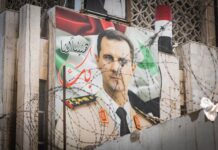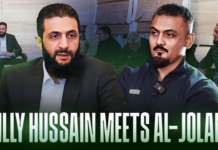On May 24 Lutfur Rahman was re-elected mayor of Tower Hamlets after a bitter campaign during which much of the media and political establishment lined up against him.
Rahman, who stood as an independent, got 37,395 votes beating his nearest rival Labour’s John Biggs who got 34,143 votes. The turnout was exceptionally high for a local election at over 47%.
During the election campaign Rahman said he stood on his record – introducing the first London Living Wage Borough; building more affordable homes than anywhere else in the UK; and replacing the Education Maintenance Allowance to help young people stay in education.
Meanwhile, his political opponents from the mainstream parties accused him of misusing public funds and unfairly favouring his own supporters. BBC Panorama even made a high-profile documentary only months before the election which heavily criticised the mayor. Rahman denied the claims and his supporters alleged that his critics were Islamophobic and even racist.
Following his victory Rahman told hundreds of supporters that the “borough had spoken.”
He said: “I’m really grateful for your support and this victory is for you whether you are black or white, Muslim or non-Muslim, everyone is part of the community. All I want to do is serve the community.”
Sectarianism convictions
Subscribe to our newsletter and stay updated on the latest news and updates from around the Muslim world!
Meanwhile on May 12 five men were found guilty of assault after an anti-Shia protest in Edgware Road descended into violence.
Police said the men, some of whom were part of a group banned under government terror laws, and who cannot be named for legal reasons, were “carrying inflammatory banners” and “chanting sectarian slogans” targeting the area’s Shia Muslim community.
Demonstrators assembled at Regent’s Park Mosque last May before marching down Edgware Road. They were led by Anjem Choudary and were carrying banners condemning Bashar al Assad, Iran and Hezbollah over events in Syria.

Scotland Yard said two members of the public were beaten to the floor, punched, kicked and beaten with a wooden placard.
Following the verdict the Islamophobia monitoring organisation Tell Mama said the community must be on guard against intra-Muslim hate.
“Tell Mama visited the victim and we spoke to the young man who had been quite severely assaulted on multiple occasions. Humble and seeking some form of justice, he kept re-iterating that he did not hold all Sunni Muslims accountable for what he suffered and that there should be and must be no division that leads to violence on the streets of Britain. In fact, his words came from a place of hope rather than anger…
“The individuals found guilty cannot be named for legal reasons and some of the individuals are well-known to the police. Which brings us onto our final point. We need to remain vigilant against all forms of hate and this also means intra-faith hate. Hate material against Shias or Ahmaddiyas for example, is not acceptable and such material can, sadly, have an impact on vulnerable minds. In fact, in many cases of individuals involved in crime and extremism, there are multiple vulnerabilities in their backgrounds that can easily be traced.”
Syria-related terrorism
Also in May, a father of two from Portsmouth became the first person to be convicted of terrorism charges related to the ongoing conflict in Syria.
Mashudur Choudhury, 31, was convicted of engaging in conduct in preparation of terrorist acts.

The court heard he had travelled to Syria to attend a “terrorist training camp”. He was arrested at Gatwick Airport on his return to the UK.
Prosecutors at the trial at Kingston Crown Court said Choudhury had wanted to be trained in the use of firearms and intended to pursue a “political, religious or ideological cause”. The jury were also presented with his exchanges on social media, Skype and text messages, which the crown said proved he intended to go and join a terror training camp in Syria.
In one exchange, he said to his wife: “What good is a husband, father, brother that sits in comfort, sleeps in comfort, eats in comfort but neglects the cause of women being raped, children being attacked, mothers being decapitated, and daughters being murdered?”
Choudary is one of at least five men from Portsmouth who travelled to Syria in October 2013 with the alleged intention of joining Al-Qaeda-linked rebel groups fighting Bashar al-Assad’s regime.
Britain First
May also saw the beginning of a campaign by far-right activists to targeted mosques across Scotland and northern England, attempting to hand out Bibles and distribute leaflets accusing community elders of failing to stop grooming gangs.
Members of Britain First, some wearing uniforms, staged protests at 10 places of worship in Bradford city centre. The group posted images of themselves on Facebook confronting members of the Asian community.
They also visited the office of Labour councillor Nazam Azam. Mr Azam said: “They have come to Bradford to cause residents to fear for their safety. As far as I understand they have tried to access mosques. They tried to hand out leaflets but I don’t know anyone who took anything.”
 He added: “It is concerning and disturbing. We have a lot of good work going on in Bradford in terms of community cohesion and for people trying to disturb that the people of Bradford won’t fall for it.”
He added: “It is concerning and disturbing. We have a lot of good work going on in Bradford in terms of community cohesion and for people trying to disturb that the people of Bradford won’t fall for it.”
Mr Azam said the police had been called although West Yorkshire Police could not confirm the incidents on Sunday. It is believed around 10 people took part in the action.
Bradford West MP George Galloway said on Twitter: “If British Muslims – God forbid – invaded ten British churches and abused those inside, posted the videos – think it would be on the news?
Meanwhile, a statement on a Britain First Facebook site recording the action said: “This is the first of many such operations that are due to be launched across Yorkshire against Islam. The Yorkshire brigade is finally here and has ‘blooded’ itself in the most heavily Muslim town in Yorkshire.”
Omar Bakri
In Lebanon Omar Bakri Muhammad, formerly one of Britain’s most infamous radical preachers, was arrested.
Bakri was wanted by authorities for his alleged role in north Lebanon clashes and fled his home in the northern city of Tripoli before the Lebanese Army and security forces launched a security plan to restore law and order to the city, which was plagued by several rounds of clashes linked to the crisis in Syria.
Bakri’s residence was one of the first houses the military raided in search of wanted suspects.
Bakri sympathises with Al-Qaeda and recently called for the group’s black flag to be flown over the Baabda presidential palace.

Born in Syria, he lived in Britain for many years, where he was a leading member of Islamic political party, Hizb ut-Tahrir before breaking away in the 90s to form Al Muhajiroun. Upon arrival in Lebanon in 2005, he was informed by the British government that he could not return.
The Tripoli-based preacher has pledged allegiance to the Islamic State of Iraq and Syria (ISIS), urging the radical Syrian rebel group to “reactivate its cells” in Lebanon.
As news of Bakri’s arrest broke his supporters in Britain held a demonstration outside of the Lebanese embassy in London.
In a statement Anjem Choudary said: “Sheikh Omar Bakri Muhammad has had many lies attributed to him by the Lebanese authority in order to affect his arrest on behalf of the Syrian regime who are keen to stop any opposition to their slaughter of Muslims. Claims that he is representing Al-Qaeda or that he is instigating any unrest are completely unfounded.”
Al Aqsa mosque
Also in May Muslim scholars and intellectuals from various Islamic countries and schools of jurisprudence issued a fatwa to end a ban on Muslim visits to Al Aqsa Mosque in Jerusalem while under Israeli occupation.
The fatwa was announced during the three-day “Road to Jerusalem” conference which concluded in Amman, according to a statement e-mailed to The Jordan Times.

The issue of visiting Masjid al Aqsa has divided scholars in the past with many arguing that it normalises the Israeli occupation.
The proposed modifications to the ban specifically apply to Palestinians, regardless of current nationality or location, and Muslims with passports from countries outside the Muslim world.
The mosque risks falling prey to the Judaisation of Jerusalem, participants in the event said.
“There are currently plans by the Israeli government to divide Al Aqsa or to demolish it and an influx of Muslim pilgrims lends support to the concerns of Jerusalemite Palestinians,” the scholars stated.
Opinion and analysis
On our opinion pages Dr Muhammad Ahmedullah, a commentator on Bangledeshi politics, said he felt Mayor Lutfur Rahman had achieved something extraordinary given the challenges he faced during the last five years.
“He stood up to and managed to overcome the combined might of the local Labour and Tory parties in Tower Hamlets, BBC’s Panorama, Andrew Gilligan, Channel 4’s Dispatches, many hardcore Islamophobes, and also perhaps hardcore Bengali Nationalists and Awami League elements (speculations on my part by putting two and three together),” he wrote.
“It may be true that many Awami League-orientated people from the Bangladeshi community in Tower Hamlets also supported Lutfur in this election partly and perhaps because they were deeply hurt by the allegations made by BBC Panorama episode “Mayor and Our Money”.
However, I feel many hardcore Bengali nationalists, inspired by the triumph of the AL party in Bangladesh in 2009, decided to embark on a mission to isolate anyone who doesn’t follow their militant secularism and Bengali nationalism and support their new aggressive anti-Jamaat-e-Islami agenda.
I feel that part of the portrayal of Lutfur as an “Islamic extremist” or someone who has links with Islamists is because he was not willing to play according to the new agenda coming from Bangladesh and distance himself from one section of the local community identified by certain groups as Islamic fundamentalists.”
 Finally, in May 5Pillars celebrated its first anniversary.
Finally, in May 5Pillars celebrated its first anniversary.
Editor Roshan Muhammed Salih wrote that he decided to start the website with his colleague Dilly Hussain because they spotted a gap in the market.
Roshan wrote: “We knew that the British Muslim media which existed was either poor quality or in the pocket of one sectarian/political group or another. Or worse – it was closely aligned to the government.
“So we wanted to create a professional online platform that would be reliable, up-to-date, controversial, independent and non-sectarian. Above all, we wanted it to feature different points of views from within the Muslim community and to give a platform to grassroots Muslim opinion rather than just the ‘usual suspects’.
“To be honest it was a bit of a leap in the dark. We had no idea if we would attract any readers or how they would react given the fissures which exist in the Muslim community. Most worryingly of all, we had absolutely no money for the project and wondered how long we could keep it afloat.
But one year on we strongly feel that we have, by and large, achieved most of our editorial goals. On the other hand, we have failed to achieve our financial ones.”










![The Taliban’s Road To Success [Short Film]](https://5pillarsuk.com/wp-content/uploads/2024/11/Kabul-roadworks-thumbnail-218x150.png)









